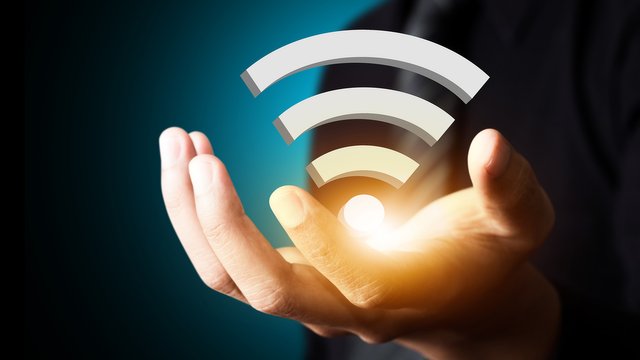Free WiFi - 9 safety rules!
If you receive a call from the bank and asked to confirm the transaction on the map, which you did not commit, you probably first throw yourself to check whether the ill-fated card in place, and to find it in your wallet, start to remember, if you withdraw money from a suspicious ATM or sin on dishonest cashiers. However, much more likely that the card was compromised during online purchases you have made, waiting for the order in a cafe.
Points of free Wi-Fi is becoming more and no one would argue with the fact that it's wonderful. However, rushing into the maelstrom of the public Internet, do not forget about safety. Settings of your laptop, tablet or smartphone by default may not be enough to protect against fraud. Below we give the nine simple rules, observing that you can protect your personal information from those for whom it is not intended, and to save your money.
1. Turn off sharing
You can share your music library, file or printer, and even allow remote login to your computer - but only if you're at home or in the office. When you are using a public Wi-Fi network, this option is disabled, otherwise your device will become an easy target for hackers.
If you are using a Windows computer, go to the Sharing settings (Control Panel -> Network and Internet). There you should disable file sharing, and to prohibit the computer detection of other network users. If you have the Mac, go to the menu in the system settings and make sure the checkbox is not checked, none of the options.
2. Use VPN
It is safest to use the public Internet through a VPN (this abbreviation stands for virtual private network - virtual private network). VPN holds your traffic through a secure network, even when you are connected to free Wi-Fi. If you regularly connect to such networks, set up a VPN more than reasonable: it is possible to organize a free, and with the use of paid, more reliable, service. The latter, for example, allow you to select, through which the country will be streams of your data, and do not limit the scope and speed of data transmission.
3. Do not connect to Wi-Fi-networks automatically
Your smartphone and a tablet, perhaps able to automatically connect to available Wi-Fi-points, but this option seriously threaten your safety: the fact that the device can "catch" network created specifically by attackers to steal information.
Most modern devices automatically connect to the network is turned off by default, but it is still better to spend a few seconds for it to verify once again how things are with this case, in the section of Wi-Fi settings in your device.
4. Use SSL
Many sites use the SSL protocol that provides communication between the users and encrypted. Of course, you can rely on this defense, but it is better to install an extension for SSL Everywhere browser, in which case the exchange of encrypted and therefore not available to attackers information will be made with almost all the sites that you visit.
5. Do not neglect the two-step authentication
The two-stage or two-stage authentication means that to access your account, you have to enter the information of two kinds: that which you have, and the one you know. Most often it comes down to what you are asked to pre-set your password and a code sent by SMS. Thus, if someone steals your password, it will not be enough in order to use your account.
Of course, the two-step authentication takes a little more time, that sometimes annoying (such scheme is used by most Internet banks, and sometimes really want to disable it, but do not make it impossible to accidentally).

A source